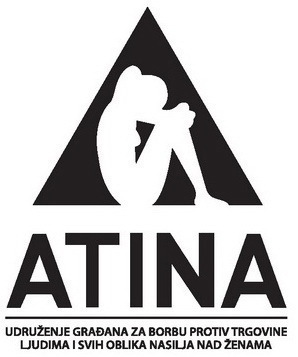Hotline: +381 61 63 84 071
Recommendations of women victims of gender-based violence and human trafficking to improve support systems and services

1. Victims must be informed of all their rights and informed in a timely manner of all services and the functioning of the entire support mechanism and the clear mandates of all actors involved, in a way that is clear and understandable to them.
2. It is necessary to establish the entire support mechanism on the needs of the victim and respect the full participation of the victim, for the support system to be centered on the victim, to move from "work for the victim" to "work with the victim". Not only to be asked but also to be heard.
3. Continuous education of professionals in order to consistently apply existing legal solutions and standardize the actions of employees in state bodies, especially in the judiciary, with the aim of adopting a work-focused approach to the victim and better understanding of the victim's position.
4. It is necessary to work proactively identify, respond ex officio to all parts of the system, more active field work, especially services from the social protection system, in order to reach victims who currently remain outside the support system and unrecognized as people in need. It primarily concerns labor exploitation, coercion to beg, coercion to commit crimes and coercion to marry.
5. Improving the existing legal framework in the field of protection of victims of trafficking in human beings and violence, their rights in order to prevent secondary victimization of victims from the moment the support mechanism is launched.
6. Improving specialized services for victims of gender-based violence and human trafficking by providing support through cooperation between relevant state bodies and specialized associations for the protection of victims. Lack of specialized services especially for migrant women victims of gender-based violence.
7. Application procedures for a particular service, especially when it comes to material benefits, should simplify and speed up decision-making, because they are applied for at the time of urgent need and it is necessary to respond quickly.
8. Psychological support and psychological counseling, which contributes to the process of reintegration and recovery, should be an integral part of all forms of support of the social protection system and be available to women victims even in a state of emergency, in several languages.
9. Media content should protect the identity and respect the right to privacy of the victim, and weigh more precisely what is in the public interest and what is the right to privacy and protection of the dignity of the victim.
10. Protection measures during an epidemic should be specifically designed for vulnerable populations, especially those who have had a close experience of trauma resulting from abuse or violence in isolation.
11. In the design and implementation of affirmative messages as well as the creation of prevention campaigns in general, it is desirable to include women who are well acquainted with the state of retraumatization, which personal advice could alleviate stressful situations for other women with similar life experience.
12. It is desirable to actively continue the work of the Advisory Body, which would participate in the development of all relevant documents, strategies, amendments to legal solutions governing the issues and position of victims of gender-based violence and human trafficking. It is necessary to involve the Advisory Body when creating new specialized services for victims.
13. It is necessary to reform the social protection system in the institutions that belong to the main service providers under their jurisdiction, such as social work centers in the direction where individuals would be specially trained to support and assist in certain issues such as domestic violence or trafficking. people and where such cases would be monitored for a longer period of time due to the risk of recurrence of violence or trafficking, it is conditioned directly and with the necessary increase in the number of employees, and the delegation of a smaller number of cases per case manager.
14. It is necessary to increase the supervisory support to the professional workers of the center, which, in addition to the necessary support to the employees in working with users, would also have direct and more frequent supervision over the work of case managers.
15. Consistent implementation of existing legislation in order to protect the rights of victims of trafficking in human beings to privacy, security, assistance and information in criminal proceedings, in particular the application of the provisions on particularly sensitive witnesses in the Criminal Code.
16. Application in practice of the absolute ban on confrontation of particularly sensitive witnesses and juvenile injured persons with the accused, as well as equipping all competent courts with technical possibilities for hearing particularly sensitive witnesses and juvenile injured persons, without the possibility of re-summoning and subsequent examination.

Recommendations were written within the project funded in part by a grant from the United States Department of State. The opinions, findings and conclusions stated herein are those of the author[s] and do not necessarily reflect those of the United States Department of State.












 FACEBOOK
FACEBOOK TWITTER
TWITTER YOUTUBE
YOUTUBE